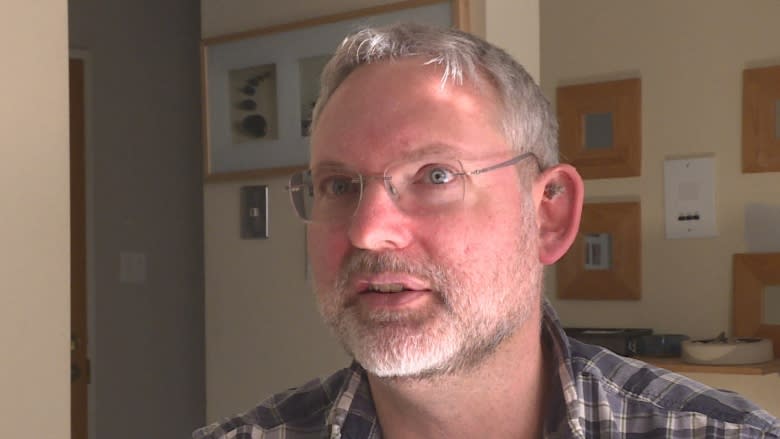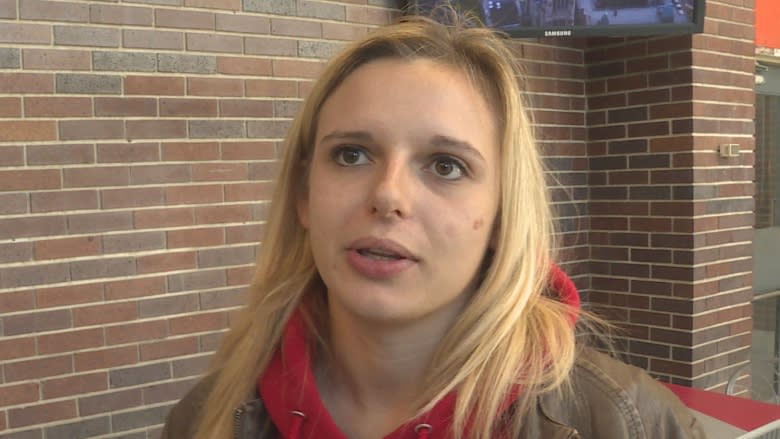Trump supporters a rare breed among American voters in Ottawa
For Americans working and studying abroad, as well as those who have dual citizenship, this week marks an important date in the U.S. federal election cycle. Many states have set mid-October as the deadline to register to cast an absentee ballot in the election.
In Canada, the combined vote of all those absentee ballots could have an impact, since estimates on the number of U.S. citizens living here range between hundreds of thousands and a couple million people.
David Schellenberg, a Live 88.5 FM radio host and U.S. citizen by birth, has spent most of his life in Canada. This spring he decided to become a member of the local chapter of Democrats Abroad, a group that encourages supporters of the Democratic Party living in other countries to cast their absentee ballots in federal elections.
"There isn't much that an average Canadian can do, other than to just be globally aware and to make sure that anyone who you know who has the ability to vote actually gets out and does it," Schellenberg says.
Like many members of the Democratic Party, Schellenberg is motivated by an intense dislike for Republican candidate Donald Trump. But he also says he's a big fan of Hillary Clinton.
"She is the most qualified person ever to be president ... and I think that is worth being impressed with, and worth fighting for. ... She is by far the best choice," he says, adding that the concern right now among party faithful is complacency.
"I don't think we're afraid of him [Trump] winning because he is kind of collapsing as he goes, but it's that feeling of, if we are not active, if we don't make sure that everyone gets out and votes, if you become lazy, that's when he just might win."
Trump supporters hard to find
Republicans Abroad Canada appears to have a much smaller organizational base and, despite repeated requests, would not provide anyone to speak about their efforts to get out the vote. But CBC News did find one person in Ottawa who has already cast a ballot for Trump.
Georganne Burke, a former community relations manager for the Conservative Party, has dual citizenship and has voted in previous U.S. elections.
Burke says she "didn't come by it easily" to vote for Trump and was initially a supporter of another Republican candidate, Marco Rubio, before he dropped out of the race.
But she cast her vote for Trump because of what she sees as the failed presidency of Barack Obama and her worry that Clinton will continue that legacy, she says. She believes the U.S. has become weaker on the world scene under Obama.
'What you see is what you get'
After talking to her relatives in the U.S., Burke says she believes the economic situation there has deteriorated badly during Obama's two terms. With Trump, "what you see is what you get," she says, adding that his recent comments concerning women pale in comparison to the actions of previous democratic presidents.
She argues that Trump could not have been as successful a businessman as he is if he was not a smart man, and that he's "a more considerate and thoughtful guy than we have seen while he is in campaign mode."
Taylor Tombol, who is studying history and political science at Carleton University, has dual citizenship and will be voting for the first time in this election. She wants to do her part to make sure Trump doesn't get elected, she says.
"I do feel like he is waging a war on the Muslim communities in America. He's got very racist rhetoric," Tombol says. "It's quite frightening and people take it as a joke but it is a scary predicament."
The U.S. election will be held Nov. 8, although many states require absentee ballots to be sent in well in advance of that date.



